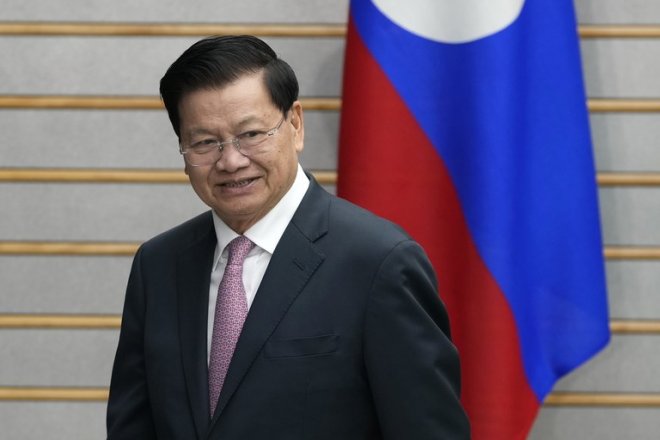Soft propaganda? YouTube deletes channels promoting North Korean lifestyle
In a posh British accent, the 11-year-old Korean girl in school uniform smiled for the camera and complained about the summer heat, saying she wanted to eat some flavored shaved ice, a delicious treat sold right in front of her school.“My favorite is the red bean and melon flavored ice,” Song A says in the video, which clearly seems staged, as if she had memorized a script.
“I like tomato and watermelon,” says her friend sitting next to her in the sunshine.
The two friends get brain freezes, discuss Korea’s delightful four seasons and tell viewers to tune in to the next edition of Song A’s vlog, or video log, where she takes the viewers along for a cool dip at the waterpark.
The innocent-looking vlogs, and others like them, are meant to promote North Korea and soften its image, experts and South Korean officials say.
Deemed a soft form of propaganda, the videos were blocked in South Korea starting June 5, at the request of the National Intelligence Service, which said they “are part of North Korea’s psychological warfare against South Korea."
Song A’s channel and the two others, “Olivia Natasha-YuMi Space DPRK daily,” and “NEW DPRK,” were censored in South Korea because “it is obvious that they [were] unilaterally overly glorifying North Korea and using [the videos] as propaganda,” a Ministry of Unification official told reporters last week.
YouTube changes position
Shortly after, YouTube followed suit and deleted the three channels, which can still be found elsewhere on the internet.
The channels apparently did not come across as propaganda to YouTube’s parent company Google, which stated they did not violate its policies as late as December 2022.
But the change in Google’s stance seems to have coincided with the South Korean government’s decision to censor them there.
“After review and finding the channels were not consistent with our policies, we terminated the three channels shared with us,” a YouTube spokesperson told RFA’s Korean Service.
“Google is committed to compliance with applicable U.S. sanctions and trade compliance laws, including those related to North Korea, and enforces related policies under our Terms of Service.”
 Song A’s “Sally Parks” YouTube channel was blocked in South Korea at the request of the country’s National Intelligence Service. Credit: “Sally Parks” YouTube channel
Song A’s “Sally Parks” YouTube channel was blocked in South Korea at the request of the country’s National Intelligence Service. Credit: “Sally Parks” YouTube channelLike Song A’s channel, the other two channels had young women or children introducing North Korea’s major tourist facilities and sharing what appears to be a normal day in their lives, doing seemingly mundane things like visiting a well-known tourist site, introducing food, or giving a tour of the home.
In another video by Song A, she expresses her love for the Harry Potter series of books, while YuMi, speaking in almost American accented English, introduces a Pyongyang amusement park, and shows off her yoga class.
But the channels are a far cry from the hardship facing most ordinary North Koreans, most of whom will never set foot in Pyongyang and are struggling to survive and get food on their tables amid poor harvests and a nascent market economy still recovering from COVID-19 shutdowns.
Shift in strategy?
The vlog style of propaganda exhibited in the three channels indicate a shift in strategy for Pyongyang, Ko Yonghwan, a senior researcher at Korea Institute for Military Affairs, told RFA.
The first North Korean state channel, called Uriminzokkiri, or “Among our race of people,” emerged in 2010, but it was deleted in 2017.
Several more accounts under the same name were opened and again deleted in 2018, 2020 and 2022.
Other channels including DPRK Today, Red Star TV, and Echo of Truth were also created and deleted one after another.
Channels like Uriminzokkiri were not receiving much attention from viewers in other countries, and those who did see them criticized them for being overwhelmingly and obviously propaganda, said Ko.
“This is why they changed the propaganda method [for Song A and Yu Mi’s channels] by introducing women and children to [try to] show that North Korea can be a happy place to live,” she/he said.
“They [attempt to] show that North Koreans have the internet, can upload YouTube videos, visit good restaurants like people in South Korea, and go to amusement parks.”
The average person in North Korea, however, does not have access to the internet, and those fortunate enough to have devices capable of connecting can only access North Korea’s closed intranet.
Because of this, it is important that South Korea conduct media literacy education rather than simply blocking the channels, Ha Seung-hee, a research professor of North Korea studies at South Korea’s Dongguk University told RFA in a phone interview.
“There is a need for [it] because that will allow the people to have a discerning perspective on North Korean content and to critically view the information … on their own,” she said.
Following the deletion of Song A’s Sally Parks channel, a channel with the same name has reappeared on YouTube with nearly identical content.
A YouTube short video lamenting the deletion of Sally Parks and New DPRK is the latest uploaded content.
Translated by Claire Shinyoung Oh Lee. Edited by Eugene Whong and Malcolm Foster.
[圖擷取自網路,如有疑問請私訊]
|
本篇 |
不想錯過? 請追蹤FB專頁! |
| 喜歡這篇嗎?快分享吧! |
相關文章
AsianNewsCast






















